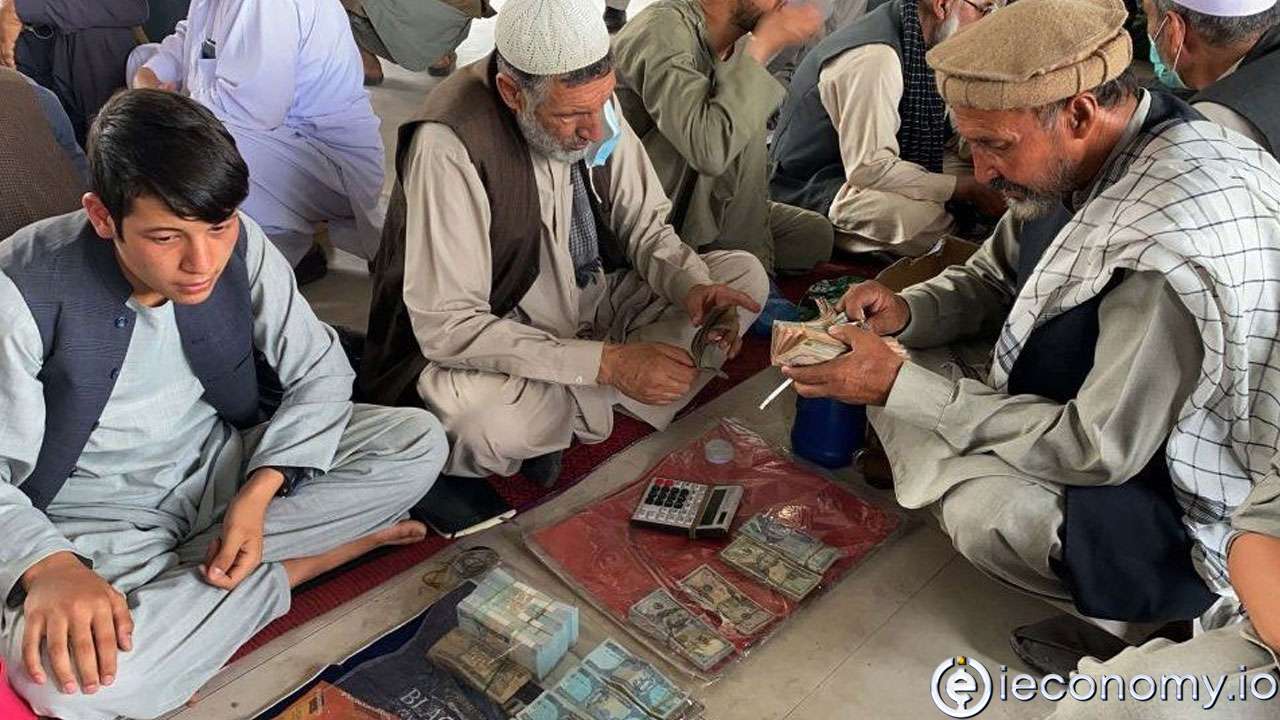6095
0
Taliban has banned the use of foreign currency in Afghanistan
Taliban has banned the use of foreign currency in Afghanistan. It has called for assets to be released, but the US has rejected the option.

Yazar: Tom Roberts
Yayınlanma: 7 Kasım 2021 21:51
Güncellenme: 2 Mart 2026 21:42
Taliban has banned the use of foreign currency in Afghanistan
The radical Taliban movement has banned the use of foreign currency in Afghanistan. However, it is this ban that could further jeopardize the Afghan economy, which is on the verge of collapse and threatens a country facing a volatile political situation, the consequences of the pandemic and environmental threats. "The Islamic Emirate instructs all citizens, business owners, traders, businessmen and the general public to carry out all transactions in Afghan currencies from now on and to strictly refrain from using foreign currency," Taliban spokesman Zabihullah Mujahid said in a statement on the Internet. "The economic situation and national interests in the country require all Afghans to use only the Afghan currency," the Taliban said. "Anyone who violates this order will face legal action," he adds. At the same time, the Afghan economy has been facing great difficulties since the Taliban's takeover, as a result of the withdrawal of international financial support and restrictions on the use of other currencies. For example, the US dollar was a very frequently used currency in Afghanistan, and locals paid with it in markets or in areas directly adjacent to other states, such as the border with Pakistan. After the Taliban took control of the country in August, the US Federal Reserve and central banks in Europe froze billions of dollars worth of Afghan foreign assets. The country is thus facing an acute shortage of cash. The Taliban has called for Afghan assets to be released, but the United States has rejected the option. "We believe it is essential that we maintain sanctions against the Taliban, but at the same time find a way to get legitimate humanitarian aid to the Afghan people. That's exactly what we're trying to do now, "US Deputy Treasury Secretary Wally Adeyemo told the US Senate Banking Committee last month. Afghanistan has also been hit by an outflow of foreign aid. Foreign grants used to finance three quarters of public spending. Earlier this year, the International Monetary Fund (IMF) said Afghanistan would no longer have access to its resources, and the World Bank also stopped funding projects in the country. The IMF warned last month that the country's economy could shrink by 30% this year, throwing millions into poverty and causing a humanitarian crisis. The fund also said that Afghanistan's economic problems could trigger a refugee crisis that would affect neighboring countries, Turkey and Europe. In addition to the economic difficulties, the country is also plagued by a severe drought, which has destroyed much of the wheat crop and caused prices to rise sharply. The UN World Food Program has warned that millions of Afghans could face famine as a result of a combination of drought, conflict and a pandemic.İLGİLİ HABERLER





European stocks soared and focus shifted to German retail sales after Powell's speech!

Forex Signal For TRY/USD: Inflation Slowdown in November.

Forex Signal For GBP/USD: Bullish Trend Still Not Breaking While Recovery Continues.

Forex Signal For EUR/USD: Starry US Data Points to Higher Fed Increases.

Forex Signal For BTC/USD: Downside Continues as Bitcoin Recovery Moves Less.
En Popüler Haberler
Yorum Yap
Yorumlar
Henüz yorum yapan yok! İlk yorumu siz yapın...